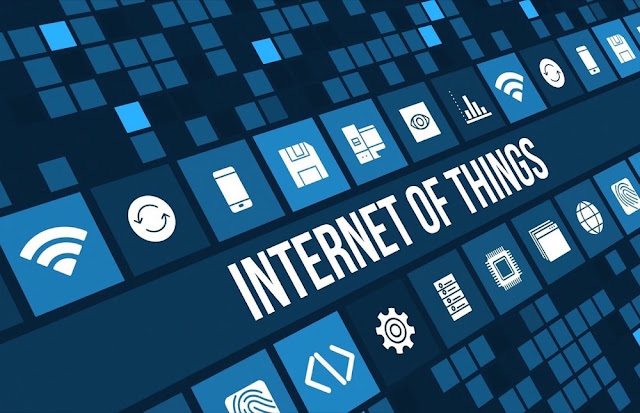Conveniently Insecure
Welcome to the 21st century, it is a world filled with innovation, technology and convenience. Each day we stumble upon some amazing breakthroughs that will change our lives. Someone will create a device that will make our lives easier, that is the trend now and every manufacturer is rushing to push the latest and greatest in what is technologically possible and it shows, we now use Siri or Google Assistant to help us in basic tasks, what seems to be a normal technology to use was a dream a couple of years ago, it was not long ago when having such tech would be exclusive to sci-fi movies such as Star Trek which saw the first iteration of a Siri-like interactive computers including iPad-like tablets.
All this
major rush to provide the ultimate convenience tools for the average citizen,
scientists scrambling to install the newest machine learning algorithm that
will help us save money by using their smart thermostat, or having a speaker
that we can chat with to provide us with the weather and the latest and
greatest cooking recipes. All of this created a dystopia where our lives
depends on these machines to get by in our days. Until someone lose the access
to their device or finds out that their beloved smart speaker was silently listening
to their most intimate moments. This is not out of a horror movie because when
these companies work hard to provide simplicity and a minimalistic interface,
they lag on a different category: Security.
How
much are you willing to pay to see what kind of information is available about
you on the internet? Are you willing to
face the fact that someone was monitoring everything you are doing or is it the
usual response of “no one cares to collect data about me, I am a nobody”, well
sorry to tell you that every byte of information has its value and someone will
pay good money just to learn your habits.
So
let us take a stroll down this wormhole and see just how much the added convenience
functionality has affected our basic human right, security and privacy on the
web.
We
constantly trade between security, usability and convenience. Frequently, cyber
security comes in the way of IT users going about their daily tasks. Security
experts frequently advocate for increased security and work to put in place
strong and effective measures to keep their company's digital assets safe from
cyber thieves. With all of the hacking that we hear about in the news every
day, this is understandable. However, security is fast becoming an impediment,
an inconvenience, and, in many cases a business disabler rather than an enabler
for users. It was all about users interacting and participating on the Internet
without fear, according to security providers using web 2.0, users were able to
freely travel the internet thanks to the rise of social media, creating
excellent content, interacting, making the most of social media, and clicking
away at will.
These
days, the picture is different. Users should be cautious when clicking on web
links, according to security experts. Users should be wary of hyper-links received
by email. I'm sure users are perplexed and frustrated by all of these security
warnings. The majority of consumers are most likely perplexed and fatigued by
security awareness. And it’s understandable as a casual user need to finish
what they are doing as fast as possible and get on onto something else, high paced
modern life requires fast interaction with daily devices, at every corner users
will choose convenience with a risk than to think they are wasting time instead
of finishing something else. The problem is figuring out how to use smart
technology to its full potential. The benefits of smart, connected devices
sound fantastic until there's a security breach, hacking event, or privacy
violation, which is frequently followed by the statement that "this is the
trade-off we have to accept for the sake of convenience."
According
to the 2018
Norton LifeLock Cyber Safety Insights Report, 85% of Americans are
concerned about their privacy. However, 66% accept that their online privacy
comes with risks in order to make life more convenient. Apparently, risking our
privacy appears to be a trade-off that the majority of us are willing to
undertake. I believe the same is true in terms of security, especially given
that according to Norton's survey, 75% of Americans are aware that their smart
gadgets can be hacked, and 80% are aware that unauthorized access to one's
email account can lead to access to all associated devices. [1]
In other news, and due to the
Covid-19 situation most of us have been working or learning from home, online
learning has become an essential part of learning for students all around the
globe. Among many of its platforms, Zoom, developed by Eric Yuan, has
undoubtedly become a leading figure in online learning. While the platform
provides a number of convenient features, such as webinar, reaction system and
breakout rooms system, critics insist that it still has a critical downside–its
lack of cybersecurity.[2]
Quoting Mr. Brian Feldman on his
findings; “ Feldman expressed his concerns with the app’s installer Zoom’s
installer, Feldman stated, had an issue where it took over admin authority to
gain root access to the user’s computer. This issue could potentially allow the
app to install programs that can access the user’s webcam and microphone. The
app also has a dubious routing system that again puts the user’s security in
danger. Feldman further elaborated that
Zoom was found to be sending the users’ data to Facebook, even if the user was
not logged in to Facebook. What’s worse, Zoom has recently apologized for
routing the data through China, where the internet is largely controlled by the
government.” [3]
While
Zoom claims that it provides end-to-end encryption, the reality is that they
only provide such encryption, which prevents anyone from accessing one’s zoom
meetings or chats, to paid users only. This makes the majority of the 300
million daily users vulnerable to cyber attacks, such as bombing and hijacking.
This
goes to show that even multi-billion companies use the model of relying to
provide convenience to their users and apologizing when they are caught red
handed carelessly storing their users’ data.
Users
on the other hand while knowing this might happen to them, choose the turn a
blind eye because nothing happened yet, and the issue is summarized by an
example as follows; How many of you will use 15 digit unique character and two-factor
authentication plus biometric verification to access your Facebook accounts? Chances
are it’s a slim percentage of people.
Understandable!
Manufacturers are lagging behind in implementing cutting-edge security
solutions to their platforms and security became an added feature rather than a
core structure. In a nutshell, the more
secure the network, the more inconvenient the access becomes for end users.
This poses a great risk for information security teams trying to protect their organizations
from attacks while doing everything possible to preserve the security of their
weakest link, the human factor.
I can rant endlessly about this issue and
provide endless material where smart devices where used as zombies to mine data
from users or to provide excellent habit stalking material for shady
individuals on the internet. But this will not help with our battle to secure
users from prying eyes.
What
needs to be done must come from finding balance between security and
convenience, the key to overcoming this dilemma is to strike a balance. One
should not be made to suffer for the sake of the other. However, in the short
run, we will have to forego some comfort in order to obtain a high level of
security. Implementing app based two-factor authentication (Google
Authenticator, Authy), use a complex password and store it on a password
manager if needed, never leave the default login authentication that came from
the manufacture and most importantly always update your devices to the latest
patch available. These may seem like some simple things to do but the benefits
are outstanding to protect yourself.
Businesses
must also hold themselves accountable for security breaches involving their
customers. They should be open and honest about how they protect and use their
clients' data, as well as do their share to keep the information secure. This
will inevitably result in a decrease in data dissemination and the excel
attachment containing the client's individual data. Many firms will undoubtedly
be able to reduce their current cyber security challenges as a result of this.
In
my closing statement I want to point the fact that security and privacy are a
human right and should not be taken for granted. Introducing some due diligence
into our daily lives can aid in avoiding so much problems, moreover help keep
us and our loved ones safe in this digital age.
REFERENCE:
[1] 2018
Norton LifeLock Cyber Safety Insights Report
[2] ConvenienceVs. Security: Is It Possible To Have Both?
[3] Zoom:the dilemma of convenience and security
This
article does not contain advice or recommendations. Every move involves risk,
and readers should conduct their own research when making a decision. The
views, thoughts and opinions expressed here are the author’s alone.



Comments
Post a Comment